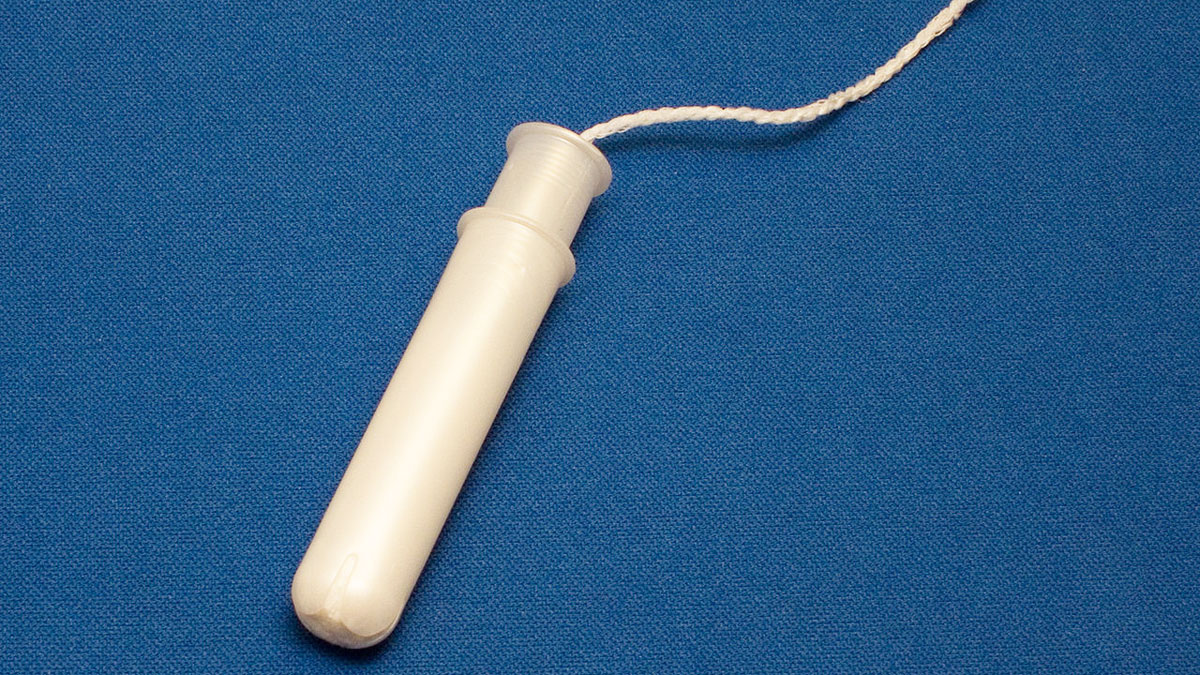Tampon tax: ministers promise to raise issue in Brussels
Tax laws that classify tampons as 'non-essential luxury items' are illogical, sexist and outdated, say campaigners

A free daily email with the biggest news stories of the day – and the best features from TheWeek.com
You are now subscribed
Your newsletter sign-up was successful
Ministers have promised to lobby Brussels over the so-called tampon tax in order to avoid a rebellion in the House of Commons.
Women in the UK are currently forced to pay a 5 per cent levy on tampons and other sanitary products because they are called as "non-essential luxury items" under EU tax laws.
Labour and other opposition parties were demanding a government strategy to end the VAT on sanitary items, and Eurosceptic Tories had threatened a rebellion.
The Week
Escape your echo chamber. Get the facts behind the news, plus analysis from multiple perspectives.

Sign up for The Week's Free Newsletters
From our morning news briefing to a weekly Good News Newsletter, get the best of The Week delivered directly to your inbox.
From our morning news briefing to a weekly Good News Newsletter, get the best of The Week delivered directly to your inbox.
But MPs voted against the motion after Treasury minister David Gauke said he would raise the issue at the European Commission as a concession, The Guardian reports.
"This debate illustrates there is very considerable cross-party support for the UK to abolish VAT on sanitary products," he said.
"To that end, I will raise this issue with the EC and other member states setting out our views – that it should be possible for member states to apply a zero rate to sanitary products."
A petition calling on the government to review the tax status of feminine hygiene products has attracted over 250,000 signatures, with campaigners arguing that the tampon tax limits the accessibility and affordability of crucial healthcare products.
A free daily email with the biggest news stories of the day – and the best features from TheWeek.com
However, the government argues that its hands are tied and the matter can only be resolved with the approval of all EU member states.
History of the tampon tax
Sanitary products were taxed at a rate of 17.5 per cent from 1973. Following a successful campaign in 2000, VAT on tampons and sanitary towels was reduced to 5 per cent. Labour MP Dawn Primarolo, who led the campaign, said it was "about fairness, and doing what we can to lower the cost of a necessity".
What campaigners say
Yesterday's motion was tabled by Labour's Paula Sherriff who argued that the tampon tax hits the poor the hardest. "Imagine, for example, being homeless when that time of the month comes," she added. "Think what it's like to face a period without even having a bathroom." Fellow Labour MP Jess Phillips said the reason the tax still exists is because most MPs "don't have wombs".
Laura Coryton, who started the petition, argues that the classification of the products as "luxury items" is simply illogical. The Independent's Natasha Preskey agrees, writing: "There is nothing luxurious about my periods."
They point to a number of products which enjoy tax-free status in Britain, including alcoholic jellies, crocodile meat and Jaffa cakes. "While we can live without consuming the flesh of unusual animals, we cannot live without the public participation of those who menstruate, which is dependent upon the accessibility of sanitary products," argues Coryton.
She says she wants the chancellor, George Osborne, to take a stand and say: "'This isn't how the Government feels – we don't think women are less important and that even if it's difficult, it's a tax worth fighting because sexism has no place whatsoever in our tax system'".
Campaigners also argue that the tax is indicative of a wider problem of society's reluctance to discuss menstruation. Jyoti Sanghera, chief of the UN Human Rights Office, said the stigma around menstruation is "a violation of several human rights, most importantly the right to human dignity".
What the government says
Because of the decision to standardise tax across the continent, the government argues that the application of VAT is not a British issue, but a European one. "The application of VAT in the EU, including rates and flexibilities afforded to member states such as the UK, is governed by EU law," says HMRC.
So, in order for an item to be exempt from tax, all 28 EU member states would have to agree to change its status. "Sadly it seems unlikely that the UK would be able to secure unanimous agreement," said Labour MP Kerry McCarthy.
-
 Democrats push for ICE accountability
Democrats push for ICE accountabilityFeature U.S. citizens shot and violently detained by immigration agents testify at Capitol Hill hearing
-
 The price of sporting glory
The price of sporting gloryFeature The Milan-Cortina Winter Olympics kicked off this week. Will Italy regret playing host?
-
 Fulton County: A dress rehearsal for election theft?
Fulton County: A dress rehearsal for election theft?Feature Director of National Intelligence Tulsi Gabbard is Trump's de facto ‘voter fraud’ czar